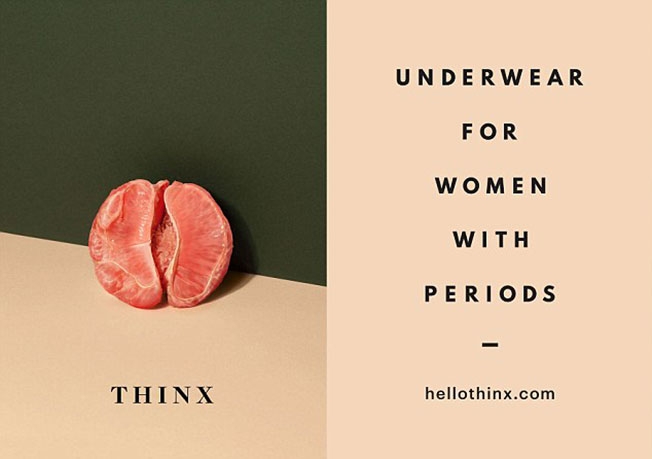
In this week’s #FeministFriday post, Elle shares her feelings on the MTA’s complaints concerning the displaying of grapefruits in public spaces.
***
One of the fastest way to clear a room of conversation partners of any gender is to start discussing your period. It is the Bodily Function That Must Not Be Named. Fart jokes, poop stories, and even vomit gags are all higher on the Chart of Acceptable Topics than menstruation. Most of the time we can’t even call it menstruation, but instead give the process a euphemistic nickname that makes it either sound harmless or (in my opinion) twenty times more horrific. “A visit from Aunt Flo,” “surfing the crimson wave,” and “the red scare” are all used in place of just saying “I’m menstruating.” I’ve always preferred “that time of the month,” partly because it lets me at least think that I’m referring to lycanthropy.
This obsession with euphemisms and talking around the subject leads to things like commercials where women just wear white pants and talk about how confident they are. It also leads to the New York public transit system challenging advertisements for Thinx because the brand dares to mention periods and their ads are too “risqué.” They’re showing fruit for God’s sake.
For those who are unaware, Thinx are a brand of “period panties” meant to lessen the need for women to rely on an eternal (and rather expensive) supply of pads and tampons. They recently tried to advertise on the NYC subway system, with ads that declared Thinx “underwear for periods” and showed women wearing shirts with the underwear, or vaguely innuendo-laced images of vagina-like grapefruit or dripping eggs. (Because the grapefruit looks kinda like a vagina, and periods are the shed lining of the uterus, where eggs are supposed to go). However, this was apparently Too Much for the MTA, who refused to accept Thinx’s proposal for the advertisements. The group said that the ads showed ‘“too much skin”’ and that the innuendo-ish fruit and eggs were ‘“inappropriate.”’
As Feministing’s Mya Dusenbery points out, this is pretty dang hypocritical, considering that the MTA has allowed everything from diet ads to breast augmentation ads that show much more skin without complaint. They have even accepted other ads where grapefruit represents female anatomy. Apparently grapefruits are only acceptable when they are stand-ins for breasts, not vaginas.
Reportedly, the MTA was also concerned with the simple word “period” because of fears that children would see the word and then ask their parents about it. The horrors. Imagine trying to explain functions of human anatomy to your children. What do people think you are, the parents of said children?
The MTA is still “considering” the ads, but the fact that this was an issue in the first place shows how taboo menstruation still is, and the bizarre double standard that occurs regarding the representation of women’s bodies. A woman’s nearly-nude body is “normal” when it’s clad in a bikini and used to shill a diet, but once it veers too close to other bodily functions (menstruating, lactating, etc.) it suddenly becomes “scandalous” to represent. It is the acknowledgement of menstruation, not the lack of clothing on the models or the suggestive nature of the grapefruit, that made these advertisements “inappropriate” in the eyes of the MTA.
Now, don’t get me wrong: I’m not exactly celebrating the idea that periods exist, but rather championing the rather novel idea that we should all be adult enough to handle discussions and veiled representations of natural biological processes. As Dusenbery says,
Like Dusenbery, on a good day I celebrate my period as a sign that I haven’t been mysteriously knocked up with any would-be deities (my agnosticism would make that slightly awkward). On a bad day, I take my period as a sign that I did something terrible in a past life, like assassinate an Austrian archduke. But that doesn’t mean I never want to acknowledge that it is happening.
Menstruation doesn’t have to be seen as something wonderful, but it should at least be seen as something that is normal.
***
Elle Irise is a regular contributor to This Week In Tomorrow. When she’s not trying to normalize discussion of basic biological processes, she studies gender in popular culture.
